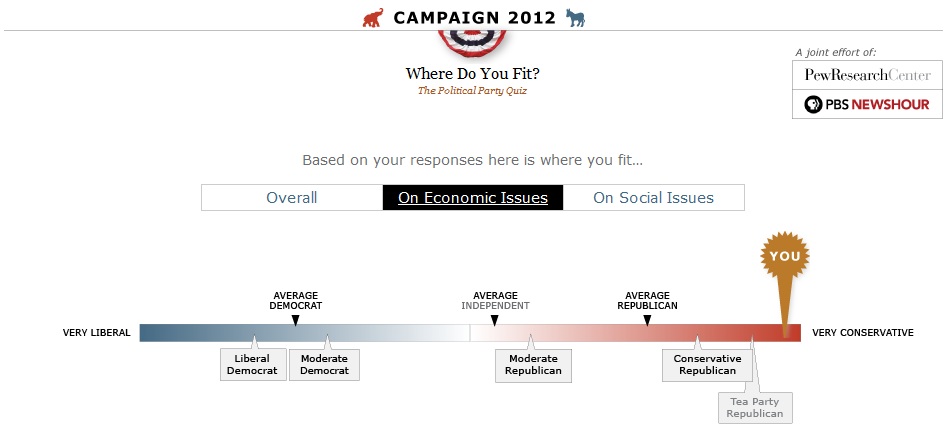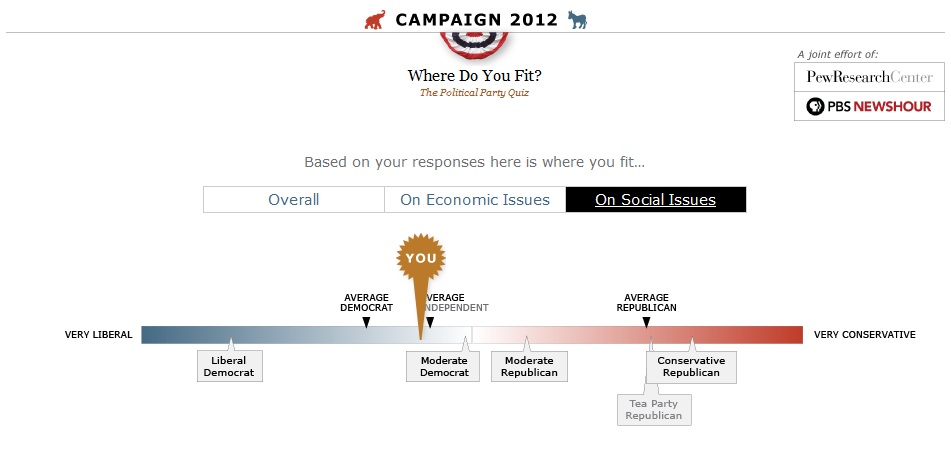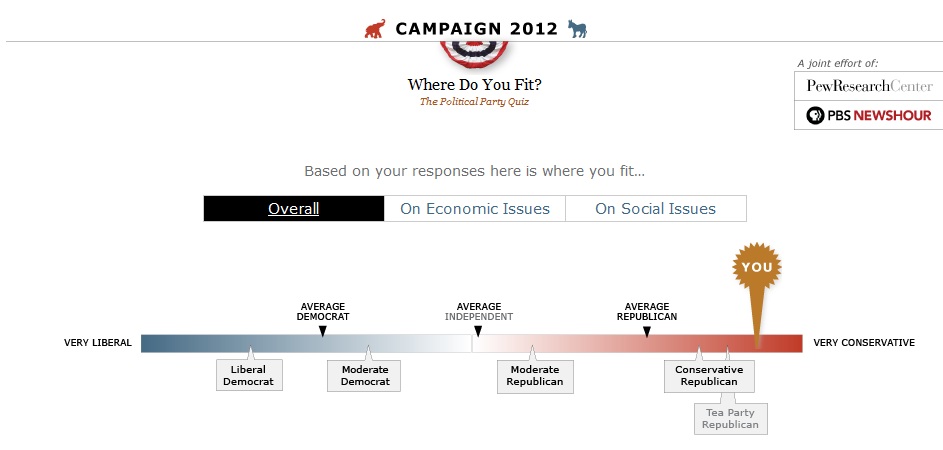I recently stumbled on a very very well written essay on Occupy Wall Street. I found the style and content compelling and interesting. Further, it is the first piece that Ive found that attempts, in a serious manner, the whole point of this thing. I certain disagree in many ways, but I found myself in agreement in several others.
Here is the text [in blue] in full with my comments inline:
I’ve spent a fair bit of time downtown at OWS now, including a couple of hours today (and last Friday) with a few of my colleagues from the Columbia philosophy department talking about civil disobedience. I’ve noticed a few interesting trends and, in talking to people, have also gotten a feel for some of the ways in which this movement is both different and (perhaps because of that) not well understood yet. What follows are a some reflections on the movement, how it differs from previous instances of civil disobedience, and why it might succeed where other progressive activism in the last few decades has failed. A lot of this is speculative and/or based on my own observation and experience. Comments are encouraged, and I’ll probably say more about this in the future.
1. Goals and Methods
There’s been quite a bit of discussion of the fact that the occupiers here lack a consistent organizational scheme, a consistent message, and a consistent set of demands. I think that the NYT op/ed on “political disobedience” (attached) comes closest to appreciating the fundamental issues here, but there’s still some more to say. It’s worth emphasizing, I think, that the disorganized nature of the movement is a (to borrow a term from the computer scientists) a feature rather than a bug. That is, the lack of a codified list of demands or hierarchical organization scheme is something to be celebrated as a strength of the movement, not a problem to be solved. This fact isn’t widely appreciated, though, for a variety of reasons, so let me say a little bit about why this is the case.
I am interested to hear why the lack of a cohesive message is a feature. I do see it as a bug.
This is not to confuse society as a whole. I find it wonderfully liberating to know that our society is so free that all forms of ideas and thoughts are valid enough to gather people of like mind. However, when dealing with institutions, it is important to be concise and clear in the way and manner of your grievances and remedies thereto.
The most important point to highlight (and, I think, the one that is most widely appreciated) is that the lack of a codified set of shared principles and demands keeps the circle of inclusion as wide as possible. This is part of what separates OWS from other recent movements to which it might bear some surface resemblance (think, for instance, of the anti-Iraq War demonstrations of 2003-2005, or the ongoing environmental protests), and might explain why OWS is gaining more wide-spread traction while those movements ever did, despite the fact that it is only months old. It’s essential that this trend continue for two reasons.
This is most certainly true. The massive appeal to the OWS movement is the vast openness and inclusion of all petitioners. The method of decision making and even the structure [or lack thereof] is very powerful in gaining and retaining “members”.
First, it’s important that we recognize that the unusual nature of the problem here (more on this below) means that we might need to make common-cause with some people that we might otherwise avoid politically. It’s vitally important that this movement be presented not as a political movement, but rather as a social one: we’re not trying to get people to vote a certain way, endorse a certain ideology, or sign up for a certain party. Rather, we’re trying to build a coalition of people who recognize the presence of a certain problem in the way our political and economic systems are structured. It’s perfectly possible that individuals within this movement might disagree about how to solve that problem (again, more on this in a moment), but it’s essential that the core around which the movement is build remains a recognition of a problem that most people no matter their political persuasion can agree is a problem.
OWS will struggle in this attempt. Already I see the lines and divisions of “Party” take form. You see the Democrats co-opting the movement and the Republicans shunning it and distancing it. It will be difficult for the OWS movement not to be portrayed as the answer to the Tea Party.
However, with that said, I am SURE that many on both sides of America’s political aisle would agree that we have a problem in how government interacts with Wall Street and business in general.
Moreover, it’s important that this problem continue to be presented as one that’s affecting lots of individual Americans today. Everything I said in the last paragraph might equally well apply to a movement aimed at addressing climate change but (alas) no such movement has materialized. That fact is telling. It’s significant, I think, that the dangers of global climate change are still largely someone else’s dangers: the problems are going to show up in ten years, or on the other side of the world. It’s hard to rally significant numbers of people around an issue when we can’t point to concrete, immediate, tangible problems. The current economic issues, on the other hand, are as concrete as your plummeting house value, your neighbor’s lost job, and your child’s six-figure student debt. These are issues that normal people can relate to, and that are accessible to their ordinary, every-day experience; you don’t have to understand a significant amount of science to see that your inability to find work is a problem; similarly, it isn’t possible for the powers-that-be to spread the kind of disinformative smoke-screen we’ve seen with climate change–there’s just no way to suggest that there’s genuine controversy about whether or not your poverty is a problem.
This is right on point. Whatever the cause, and no matter how much we disagree on the cure, the fact that many MANY Americans are hurting, and hurting right now, is a very valid and insightful point. We can [and do] debate tax theory all day long. But to the average American, such conversations are beyond their mathematics ability [sadly] and certainly outside their “care zone”. But this, THIS pain is real and present.
Keeping things somewhat vague keeps this wide appeal possible. If the movement is to succeed, it’s going to have to break into the mainstream. The goal is not–can not–be to radicalize the average person on the street. The average person on the street does not want to be radicalized. He wants to feed his family; she wants to crawl out from under crushing debt. I saw a group of people downtown today chanting about “creating the Malcolm X nation by any means necessary.” Whether you think that’s a laudable goal or not, it is absolutely essential that it not be seen as the primary goal of the movement. We don’t want the Malcolm X nation. We don’t want an end to capitalism. We don’t want to destroy the State. We want a system that gives an individual willing to work a realistic chance at a good life. That’s a moderate goal akin to the one espoused by the workers’ rights movements of the 20th century (“8 hours for work, 8 hours for rest, 8 hours for what we will”), and it’s one that normal, non-radical people can both understand and support. It’s easy for them to see why it’s in their interest, and it’s easy for them to see the extent to which we don’t have that kind of system now. If we can include the radicals, then all the better: they’ve got the kind of commitment and energy that it might take to keep this movement running during the cold winter ahead while public support slowly gains momentum. Again, though, it’s important that no particular kind of radicalism comes to dominate: if we can continue to build a movement that appeals both to radical anarcho-capitalist libertarians and radical Marxists, then we’re sure to end up with a movement that appeals to Average Jane the Office Worker.
And here we see the beginning of a cohesive “goal”. It starts out by claiming what it can’t be:
- Malcolm X Nation
- Anti-capitalism
- Anti-state
And then it moves to what it should be:
- A system that gives an individual willing to world a realistic chance at a good life.
A disclaimer here. THAT is a noble goal. It is absolutely consistent with the American Dream that we be able to make for ourselves the kind of life that we wanna live. And I think that it is uniquely American that we wanna EARN that life. Not have it given to us. However, where I think the movement will wither [not fail] is that for most Americans, most people willing to work, that dream is already a reality.
2. So What’s the Problem?
So what exactly is the problem that everyone seems to agree is here? When I first started going down to OWS, there was a very unfocused sense of rage all around; people were angry at having lost their jobs, lost their homes, and lost their credit. People were angry about the government’s complete inability to fix things. People were angry about the fact that the rich were getting richer while the middle class shrank into debt. There’s still a lot of anger, but it’s also starting to focus. In the last two weeks in particular, I’ve noticed one idea beginning to take hold among a lot of the demonstrators: Wall Street has succeeded in privatizing profits and socializing risk. This, more than anything, is the heart of the constellation of specific individual complaints people all over the nation are making. The problem is just that what we’ve got right now is effectively the worst of both worlds of capitalism and socialism: large corporations ran a risky financial scheme that made them tremendous amounts of money for a while, then fell apart, harming many individuals in the process. Rather than face the consequences of this failure, though, they were bailed out at the expense of the tax payers. The debate as to whether or not the bailouts were necessary is, at this point, irrelevant: the way we built the political and economic system resulted in that happening, which tremendous numbers of people now recognize was a bad thing. Perhaps it would have been better to just let the banks fail; perhaps this was making the best of a bad situation. I don’t know. What it has served to do, though, is highlight some really deep problems in the way things are currently structured.
This is very well said. All of us are upset that banks were bailed out.
*** Unsolicited advice to increase the broad appeal. Include car companies in the rage. ***
We’ve privatized profit and socialized risk: the corporations at the top of the economic pyramid have absolutely no incentive to either play by the rules or operate responsibly–they can turn extensive profits on risky schemes, knowing that even if those schemes fail they’ll be propped up by the American government. This way of framing the problem is both accurate and brilliant, and it cuts across all the economic and political divides: radical Marxists and Ron Paul libertarians can both agree that this way of doing things is theoretically unsound, and the average man on the street can recognize that it’s practically unsound as well: the status quo is not working. Radical capitalists and radical socialists will disagree about why we’ve run into this problem, but they will agree both that there is a problem and about what the nature of the problem is: the relationship between business and government is broken, and it’s operating to the detriment of virtually everyone who is a part of the system. That’s a powerful consensus, and affords us an opportunity that we can’t afford to squander.
This is a summary, or perhaps a restatement of the above. As such, it is remarkably succinct in it’s accuracy.
It’s also important that the OWS movement has–so far–operated outside the traditional political establishment. The economic aspect of the problem cuts across the capitalist/socialist divide, and a recognition that the problem is just as much a problem with the government as it is a problem with business cuts across the liberal/conservative divide as well. The fact that the issue is one about the relationship between government and business means that–given a continuation of the status quo–the problem will not be solved by private industry, but nor will it be solved by traditional electoral politics. The solution, in other words, is not to vote Democrat, vote Republican, or even vote OWS. This is part of what sets OWS apart from the Tea Party movement, which might be seen as a kind of early manifestation of these same concerns before they took hold in the mainstream. The Tea Party framed itself as a political party–their solution involved (among other things) putting their own candidates up for office at both local and national levels. The message behind OWS is that this kind of solution is no longer available. The problems have become too deep–too endemic to the status quo of the system–to admit of an easy electoral solution.
Here, again, I differ, though not subtly. I feel the economic aspect of the problem is currently being viewed through the lenses of that capitalist/socialist divide. Those of us that find ourselves to be more fiscal conservatives feel that it is the socialist aspect of the government that caused the collapse; the goal of the government to provide housing to low income citizens. I suspect that those who find themselves to be more fiscal liberals feel that corporate greed led to the collapse.
I have seen to many objections to capitalism for this not to be the general case.
The vast majority of people are suffering economically, despite the fact that we have an unprecedented amount of resources at our disposal. The kind of system we’ve been trying to run might have been effective once upon a time, but it has proven to be ineffective today. Just recognizing this is a vital first step toward fixing things. Likewise, though, we need to recognize that the way in which things have failed is going to mean that more of the same simply is not going to work. Along with socialized risk, we’ve managed to get ourselves into a situation where the people with the power to restructure the system are precisely those who have the least incentive to do so: much of our government is bought and paid for–not in the sense that bribery is going on, but in the sense that the economy of influence that governs Washington has produced a political gridlock. The interplay of market forces and governmental regulation has sent us into a kind of vicious instability that just voting Democrat or Republican (or Tea Party) in the next election is not going to fix. The problems run too deep for that, and the current political boundary conditions are such that any elected official attempting to effect real, lasting, significant change will be prevented from doing so–not directly, but just in virtue of structural features of the political system. It’s a kind of collective action problem: there’s no clear path to change from within because the things that need to be changed are precisely those which regulate the mechanisms of change. OWS is attempting to effect change from the outside: not by electing the right people, but by changing the general climate under which politics gets done. The first step is the kind of coalition-building I’ve been talking about here.
I think the first is misplaced in this paragraph. With that said, I would like to posit that the vast majority of people are not suffering. Unemployment is high, admittedly, but most of America is gainfully employed. And while the average salary is down, that is due to the tails being impacted, not the body of wage earners.
I think the main gist of this section is that normal party politics are not going to “fix the system”. In the sense that the problem exists in the “now” so to any solution that also DOESN’T exist in the same manner will seen to be ineffective. I’ll reserve comment until we read “So What Do We Do?”
3. So What Do We Do?
I don’t know. I lack the relevant knowledge and skills to plausibly suggest solutions to a problem as complex as this one. I’ve suggested that it’s a feature (rather than a bug) of the movement that it’s able to build a coalition of people who disagree about so many things. This also means, though, that the people who have built this movement are going to disagree about what the next step is. The important thing, though, is that most of them will agree that the problem is soluble: one of the greatest potential victories of OWS is in getting people to see that the current status quo is neither an inevitability nor a human-independent feature of nature. We built this system, and we can fix it if we put our minds to it. It’s likely that whatever fix we come up with will be at least somewhat painful; change is always painful, and we’ve gotten ourselves to a place where there are no easy outs. We need major revisions, and that’s likely to hurt.
And this is my greatest critique of the OWS movement. There are two ways to attack a perceived problem:
- Take the position that you are part of the solution. This requires adult conversations with clear and distinct solution.
- Riot and demand the system changes.
If we assume that the movement does not want to abdicate responsibility to the status quo, that implies they are intent on completing this change on their own. That is, OWS is not only a part of, but a DRIVING part of, the change agent. As such, a viable solution is required or, quite simply, they will never be taken serious by anyone that is in a position of influence.
Another interesting difference between OWS and the Tea Party, I think, is that many of the OWS mainstream is (like me) quick to admit that they don’t have a concrete set of suggestions about what exactly to do to fix the problems we’re facing. The mainstream media has tried to play this as an example of OWS’ ignorance, the protesters’ stupidity, or an indicator that the movement doesn’t have serious goals. Nothing could be further from the truth, though. OWS’ recognition that our problems are difficult, the system is complex, and that there are no easy answers is a mark of their seriousness and their genuine commitment to real change. OWS is a populist movement in important respects that I’ve discussed, but it also differs from previous populist movements in that it doesn’t presume to suggest that the answers are easy or obvious. Intelligent people can agree that we’re facing unprecedented problems, agree about the nature of those problems, and disagree about how to solve them. There are experts on all sides here, and none of them think that the best way to proceed isobvious. If it were obvious, there would be no need for any of this. It’s vital to recognize this point.
I certainly am a member of that group that holds OWS accountable for a lack of concrete sets of suggestions. While I would not claim they are stupid or unserious, I do represent that they are naive. Naive in the manner which is the natural order of things, not meant to be used as an insult. Before we “know” we are naive. Such is the nature of the OWS.
Change requires discipline and rigor. In demands inordinate amounts of time and skill. It requires vision. And specific, measurable attainable goals. Without these characteristics, not just casually but in obvious abundance, the OWS movement simply devolve into another populist movement.
Perhaps the best solution is the kind of solution the anarcho-capitalists might propose: a complete separation of government and business that lets market forces return us to a stable equilibrium. I have very little doubt that whether this solution is optimal or not, it would leave us better off than we are now. I don’t know if we could do better than that. Maybe we can’t; I’m not dogmatically committed to the idea that capitalism is evil. I also think that those suggesting radical capitalists solutions, though, ought to admit that it’s at least possible that we might be able to come up with an even better solution. It’s essential that all sides not let dogmatism blind them to the incredible chance we have here to explore alternative possibilities. We have resources at our disposal now of a kind that have never been available in the history of the world: this includes computational resources (e.g. computers that let us do things with models that would have seemed laughably impossible 30 years ago), theoretical resources (e.g. a burgeoning understanding of complexity and non-linearity in social systems), and concrete, labor-type resources that have come with a globalized economy.
I think it’s important to recognize the desire to work across ideologies here. I have never met the author, but I get the feeling that the solutions of the anarcho-capitalists does not fit in his natural state or world views. The willingness to cooperate is admirable.
We all recognize that the current system is broken. Before we jump to any quick conclusions about how to best fix it, though, let’s take a minute to open the problem up for consideration in the light of these new resources. People are smart and creative, and they’ve got some great new tools. Perhaps we can do better than anything that anyone has suggested so far, and perhaps not: the important thing is that we not squander this chance to try. We all should be open to the possibility that our favored solutions might not be the best ones, and we shouldn’t let dogma get in the way of actually trying to figure out what is in fact best. We’re on the cusp of a very rare moment when people of major ideological differences all agree on something. Let’s see what we can do with that.
Well said. Well said indeed!









